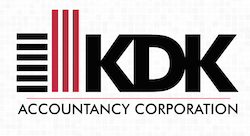You’d be hard pressed to find a profitable business owner who doesn’t set a budget for their business. It’s a vital part of creating a roadmap for success and an easy way to stay on track financially throughout the year.
Learning how to set a budget for your small business early on can align financial expectations with outcomes, which leaves you in a more confident state to run your business. You can learn how to operate leaner by understanding where excessive or unnecessary spending can be reduced, and start profiting faster. And, working with a bookkeeper who’s an expert in your industry can make creating your small business budget even easier.
What is a small business budget?
A small business budget is simply a calculated plan on how money will be spent for your business. How do your revenue and expense figures balance out? Does your revenue – the money you make from sales, accounts receivable, interest, or other means – exceed your expenses? Remember, your expenses cover everything from rent, utilities, payroll, materials, marketing, and other fixed or variable costs. You can work with your bookkeeper to get a profit and loss report and balance sheet, so you know exactly how much money you’re earning or losing. When it comes to where you stand with your small business, knowing how to plan for projected expenses and revenue can be the difference between financial power or paralysis.
Why do I need a small business budget?
That’s like asking, “Why do I need to know if my child is okay?” Well, maybe not that extreme, but if your business is important to you, you’ll want to pay attention to how you’re budgeting. It’s necessary when planning for the future and allocating resources to programs like marketing, operations, and scaling up. Budgets reveal how to use revenue in the most effective ways to work towards your business goals.
Would you be able to accurately manage your cashflow without proper budgeting? Probably not. You can work with your bookkeeper to monitor how finances are moving in and out of your business. Get reports on cashflow and business performance to see exactly where you can modify certain operational processes so you can cut expenses and drive revenue.
Read the other half of this article on Bookkeeping Express’s Blog here: http://bit.ly/2goNf1m





